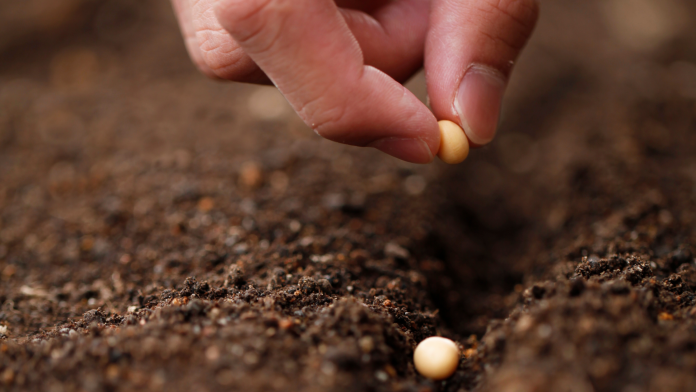Written by: Neil Forsythe
Neil is married to his childhood sweetheart, Elisabeth. Together, they’re blessed to raise two kids. Neil serves as lead pastor of Liberti Church in Liverpool, UK, a church that takes great joy in seeing the gospel of Jesus bear fruit in a diverse area of the city with deep roots in New Age spirituality.
This following content was originally published on Acts 29’s website, linked here: https://www.acts29.com/planting-with-small-seeds/
I come from a long line of farmers. My Northern Irish father was born into a family of potato farmers, and my mother was born into farming, too—although her family farmed rice in the slightly more exotic fields of Malaysia.
There’s not much room for planting potatoes or rice where I live in Liverpool, but there’s plenty of room for planting churches. My wife, Elisabeth, and I have committed our lives to this work of taking small seeds and planting them with great hope.
Liberti Church was planted in 2018 with a small seed of seven adults and a handful of kids into the community of Lark Lane, a big field of 8,000 souls who desperately need Jesus. Liverpool, like most contexts, is a place where the harvest is plentiful, but the workers are few.
Our sending church had sent out its first church plant only a few years before us. The prospect of planting with a “big seed” of people was slim, but instead of waiting to gather a bigger team with more resources, we went with what we had. We felt vulnerable and weak because of our size, but we’ve since learned that small seeds are still seeds. What matters most is the planting, not the size of the seed we’re planting with.
Small Seeds Still Grow
Obviously, there are times when we can plant too early. It’s wise to wait until teams are ready to go, and there are times when it’s right for a church to hold off planting for a season. But let’s never hold off planting because we don’t think small seeds are big enough to grow. There’s no doubt that some things would’ve been easier had we waited to plant with a bigger team, but we’d also have missed out on the fruit God had waiting for us. We felt vulnerable and weak because of our size, but we’ve since learned that small seeds are still seeds. What matters most is the planting, not the size of the seed we’re planting with.CLICK TO TWEET
A few weeks after our launch, our small seed grew its first shoot—a young Roman Catholic lady started attending regularly as we were preaching through a series on the Protestant Reformation (I know, right!), and incredibly, God saved her by grace alone, through faith alone, in Christ alone. Small seeds still grow.
Small Seeds Need Less Water
This is anything but a rallying cry to always plant with small seeds; one size definitely doesn’t fit all. But it is an encouragement to at least consider it as an option. The pandemic has left many churches with stretched budgets and congregations, and subsequently, the prospect of planting can look aspirational at best. But church planting doesn’t always need significant resources.
The benefit of planting small seeds is that they need less water. In our first year of planting, Liberti had a budget of €4,000. I was still receiving theological training, and we had no meeting space. And yet a church was planted in Lark Lane, and souls began to be saved. In seasons of scarcity, farmers don’t stop planting. They plant wisely with what they have because the consequences of not planting are too great.
Small Seeds Struggle Without Support
Small seeds can bear much fruit, but because of their fragility, they need to be adequately prepared and meaningfully supported. Planting small doesn’t mean planting poorly. Assessment, coaching, and training are vital to the preparation of a church plant, and the time we invested in these areas before Liberti was planted can’t be overestimated. In seasons of scarcity, farmers don’t stop planting. They plant wisely with what they have because the consequences of not planting are too great.CLICK TO TWEET
Acts 29 equipped us for the rigors of planting, and our church is healthier because of it. Planting Liberti with a small team and budget was also possible because we had the deep, relational support of local churches who loved us, cared for us, and had committed to stand with us for the long haul.
If we want small plants to flourish, then we need churches and networks prepared to invest alongside them with meaningful support that goes deeper and further than just a few years into planting.
Small seeds need Jesus most of all. Don’t be fooled into thinking that the communities we’re planting into need Jesus more than we do. In fact, there’s a particular vulnerability to planting small that makes your need for Jesus all the more obvious—envy, impatience, and jealousy will regularly crouch at your door as you look at other churches with more resources and bigger ministries than you (Gen. 4:7).
In the current climate, waiting until we have “enough” people and resources will inevitably slow down missional momentum. The harvest is still great, so perhaps it’s time to consider the potential of planting small seeds again.







